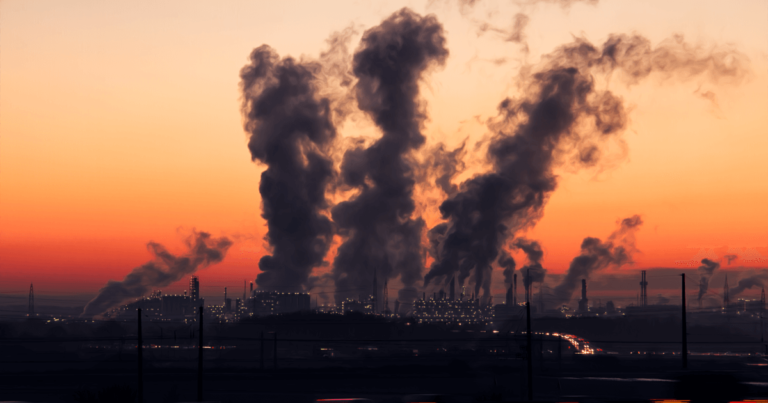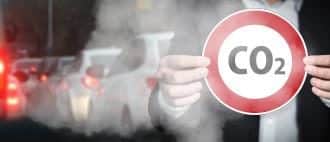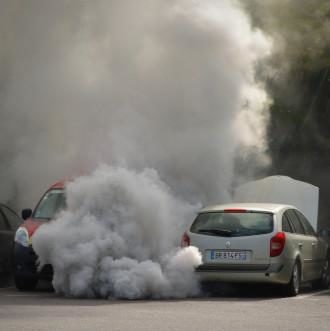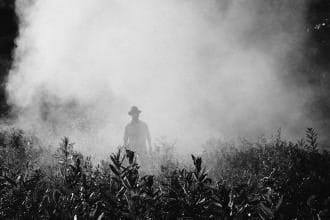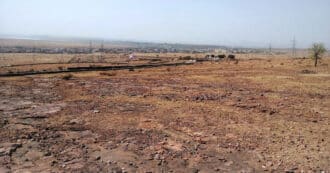By Sydney Cohen – Air pollution is one of the most pressing and scary issues that we will face in our lifetime, and it’s not going away anytime soon.
This blog talks about what causes air pollution, particular air pollutants, why it can be harmful to your health and to the environment, and how you can reduce your exposure to it.
Most importantly, we suggest some simple changes in your daily life that you can implement in order to reduce the harmful effects of air pollution.
Air Pollution
Air pollution is a problem that is hard to ignore. It’s the world’s top environmental health risk, and it has been linked to many serious illnesses.
If you want to know steps for reducing air pollution, first learn everything you need to know about what causes air pollution, and how we can work together as a society towards reducing its impact on our health.
Air Quality
Good air quality is something that we all want to live with. It is important for air quality to be high in order to reduce air pollution and improve the air that we breathe each day.
Air can become polluted by many things like vehicles, factories, power plants, agriculture etc., but there are some simple ways you can stop air pollution from happening.
The Benefits of Clean Air
The benefits of clean air are innumerable. Clean air is important for our environment as it benefits biodiversity, and improves the general health of all living things on earth.
It’s also great for human beings! But we must know how to reduce our personal contribution to air pollution if we really want clean air.
How We Can Work to Reduce Air Pollution
There are many solutions to air pollution. To improve the quality of air and slow climate warming, change must be done on a national and global level.
However, action in both individual and community settings is also important.
Tips to Improve Air Quality
Commuting to school on foot is the ideal method to begin the day. Try leaving the vehicle at home and traveling by bus or train, then walking or biking that last mile.
Animal farming is one of the largest producers of air pollution. Cattle and dairy farming are major sources of ammonia which causes pollution not only in the air but also in surface and ground waters. so, make an effort to eat less meat.
Switch energy suppliers to companies that generate renewable power. Plant new trees and greenery to improve the air quality in the neighborhood. Support Clean Air zones that reduce motorized transportation.
The Causes of Air Pollution
There are many tiny but critical ways to cause pollution in our communities. Trucks, construction tools, yard mowers, dry cleaning companies, garden-fire departments, and automotive auto-body shops make up some of them.
Total greenhouse gas emissions from these small but widespread sources represent a substantially higher proportion than any other industrial source combined.
Reducing Urban Air Pollution
In an effort to reduce pollution, reduce emissions, and reduce the potential for environmental damages in the air, the MPCA, for example, provides educational instruction and incentive programs. They have programs for businesses, cities, nonprofit organizations, and communities dealing with a broad array of environmental challenges, including air quality.
As more governments and private corporations begin to acknowledge the tremendous impacts on the environment and cost to our health of air pollution and smog, more resources will be allocated. The UN has also advocated international cooperation to reduce air pollution and address climate change.
In order to improve the sustainability of city infrastructure, these changes must be constant. Its combined elements enable us to make urban paradise a reality for generations to come. The goals of tackling climate change and emission reduction must go far beyond the urban areas of current infrastructure transportation.
The Clean Air Act 1970
The Clean Air Act set the scene for numerous efforts to improve U.S. air quality. The law requires the EPA to establish air quality standards for numerous toxic air pollutants.
In addition, it is concerned with acid rain, high ozone levels, and the warming caused by carbon dioxide emissions. The Clean Air Act was passed by the Environmental Protection Agency in 1970 and was subsequently repealed in 2001.
The EPA has established standards for certain pollutants through the Air Quality Index (AQI) and states must develop plans to address air pollution.
Religious Perspectives on Air Pollution
Rabbis Yonatan Neril and Leo Dee write in Eco Bible, Volume 2, how the Bible can inspire us to reduce air pollution.
In the Sanctuary in the desert and land of Israel, and in the Temple in Jerusalem, God commanded the priests to raise up a pleasing aroma through the burning of incense. The Talmudic scholar Rabba bar bar Chana taught that the pleasant smell of incense reached all the way to Jericho, over ten miles away. Pleasant fragrance was the dominant smell in Jerusalem, stronger than anything else (such as cookfire smoke) in the air.
The Talmud discusses how large ovens were not even allowed in Jerusalem, so their smoke wouldn’t blacken the walls of the Holy City and make it less beautiful. Jerusalem had the highest level of sanctity of all cities in the Land of Israel, thus requiring that its physical beauty, including air quality, be preserved…
The rabbinic laws to preserve the beauty of Jerusalem and Israel’s other cities are for the most part not in force today, but we should consider restoring them for the sake of the world.
In 2019, around 11 percent of global primary energy came from renewable technologies. Technologies of alternative energy sources including solar and wind power, and changes in human behavior including less use of fossil fuels, hold out hope for the sanctity of Jerusalem, Israel, and all cities and nations.
Contribute NOW to Reducing Air Pollution
Air pollution is an incredibly pressing issue affecting our human and environmental health.
Fortunately, there are many things we can do to reduce air pollution. These include:
- carpooling or using public transportation,
- planting more trees in cities with high levels of particulate matter (PM),
- working toward zero waste initiatives,
- reducing food packaging that ends up as trash,
- recycling plastics, which helps keep them out of landfills where they break down into smaller particles that end up back in the atmosphere contributing to PMs.
The Benefits of Reducing Air Pollution
This isn’t a comprehensive list but it should give you some ideas on how you might help make your city cleaner by taking small steps at home or work.
The benefits of breathing clean air, both to our health and for our planet’s interconnected systems, will always outweigh the sacrifices you could contribute to reducing air pollution.
* Featured image source

